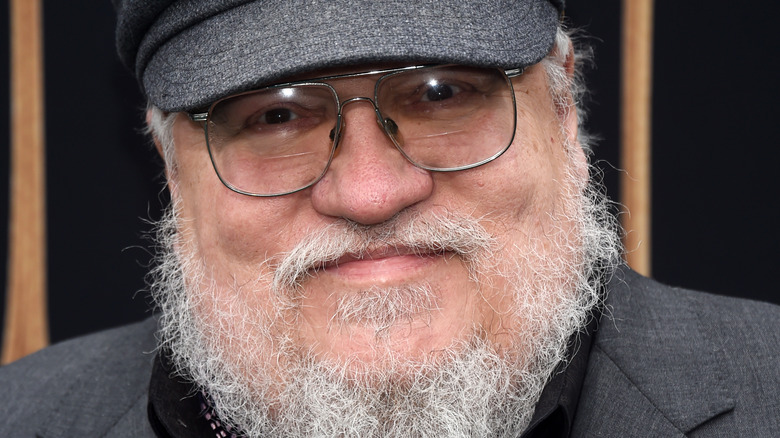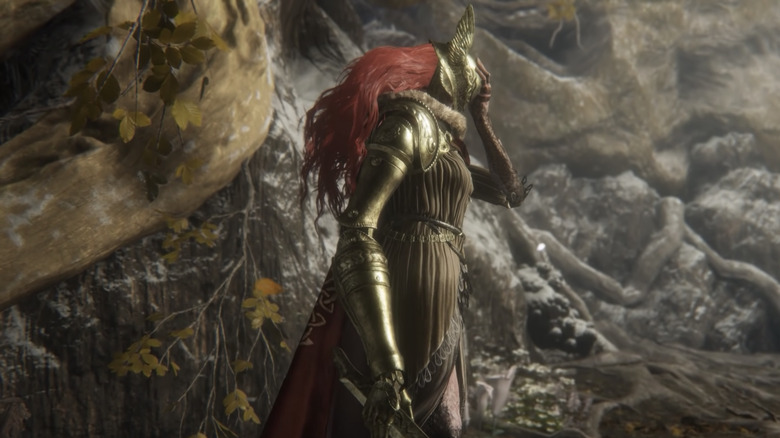The George R.R. Martin Detail You Missed In Elden Ring
When it was first announced that George R. R. Martin (author of the acclaimed "A Song of Ice and Fire" fantasy series) would be partnering with From Software's Hidetaka Miyazaki to help create their next title, it seemed like a match made in heaven. Like Martin's "A Song of Ice and Fire" franchise, From Software's "Dark Souls" series was critically acclaimed for its expansive worldbuilding and inversion of typical fantasy tropes: creating fantasy environments that feel oppressive, brutal, and overtly dark.
That said, before "Elden Ring" the studio had never produced a game that rivaled the scale of Martin's own work, which is perhaps why they attached him to the project in the first place. By his own admission, Martin was brought on to help out the studio with "worldbuilding," and Miyazaki asserts that Martin "wrote the overarching mythos for the game world itself" using conversations that the pair had during development (via PC Gamer). In any case, Martin's talent for worldbuilding makes the mythos of "Elden Ring" incredibly engaging and powerful – though it seems like he included a not-so-subtle reference to himself when crafting the game's mythology, one that becomes incredibly obvious once you've noticed it for the first time.
It seems like Martin named the entire Elden Ring pantheon after himself
The crux of the "Elden Ring" mythos has to do with the Gods and Demigods of the Lands Between, each of whom hold a Great Rune, a fragment of the titular Elden Ring. The Elden Ring was the item that made Queen Marika (the reigning sovereign of the Lands Between) a god, and when it was shattered its pieces were stolen by her children, the Demigods. Hilariously, every single one of the Gods and Demigods in the game's mythos has a name starting with G, R, or M: Godfrey, Godrick, Godwyn, Rennala, Radagon, Rykard, Radahn, Ranni, Marika, Mohg, Morgott, Melania, Miquella, and Maliketh.
It's unclear whether or not this is intentional, but considering the fact that Martin is frequently referred to by his initials (G.R.R.M.) it's certainly possible that the entire pantheon of "Elden Ring" serves as a clever nod to the author himself. Perhaps even more amusing is the fact that most of these deities are fought within the game as bosses, and play an integral part in the player's journey as they strive to become the next Elden Lord. Obviously, it's unclear as to whether or not the names of these characters are supposed to be a reference to Martin himself, but one thing is certain: it's impossible to look at these terrifying bosses the same way knowing they might just be a reference to Martin's own initials.


